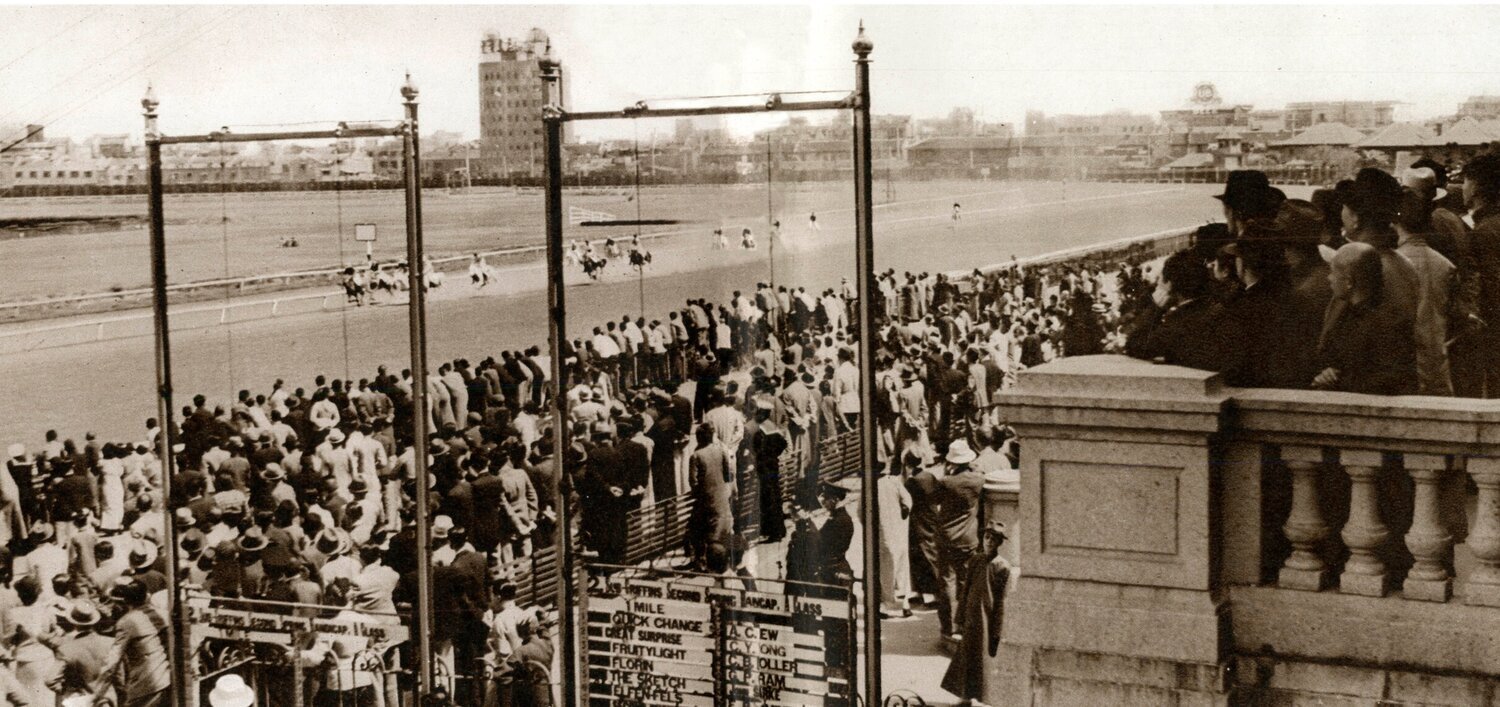Champions Day in the city of Shanghai, November 1941. The world was at war but the clubhouse at the Shanghai Race Club (now People's Park) was packed with owners and punters cheering on the pony. The funeral of Shanghai's richest widow, Liza Hardoon, was a spectacle which filled the streets of the International Settlement. Japanese occupiers and their Chinese collaborators came together in a bizarre ritual celebrated the birthday of revolutionary leader Sun Yat-sen. The opening of a new movie featuring, of all subjects, Charlie Chan, had folks lining up at the box office of the local cinema. The world had changed but the "Lone Island" of Shanghai persisted, as it had since becoming a treaty port a century earlier.
Historian James Carter's fascinating new book Champions Day: The End of Old Shanghai brings to life the vivid tableau of an era coming to an end. By the end of the year, Japanese authorities would take control of Shanghai and the city would never again be the same. What did the end of the colonial era mean for Shanghai and its residents? Why were race tracks such powerful symbols?
Professor Carter joins us as we discuss the history of horse racing, colonialism, and the last days of Old Shanghai.

